Eporner HD Sex Porn Discounts Sex Games Porn Games XXX Games Hentai Games PornStar Games 3D Porn Cams Party BEST OnlyFans Free Onlyfans
Live Sex Free Live Sex Free Sex Games Páginas Porno Rose Toy Nude Celebrities Celebrity Sex Videos TikTok Porn AI Girlfriend AI Nude
Live Sex Free Live Sex Free Sex Games Páginas Porno Rose Toy Nude Celebrities Celebrity Sex Videos TikTok Porn AI Girlfriend AI Nude
Published on 2025/05/29
A soul from another era, one of those who doesn’t consider a piece finished until he’s holding an image worthy of a wall and of being contemplated over time.
In his long-running photo series The Nude in the Landscape, Hemingson weaves the human body into the raw, untamed beauty of the Pacific Northwest. Flesh becomes an echo of the land—silhouettes breathing among ancient forests, cliffs that whisper, and waters that touch the skin like they remember it from another life.
His lens explores that fine tension between the fleeting and the eternal: the fragility of a body standing before the vastness of the world. Skin and stone, light and shadow—all come together to create a visual poem where the viewer doesn’t just look, but connects.
There’s something deeply human about it all.






















VINCE HEMINGSON'S PHOTOGRAPHY
Vince Hemingson is a photographer, writer, adventurer, tireless traveler, bestselling author, and filmmaker.A soul from another era, one of those who doesn’t consider a piece finished until he’s holding an image worthy of a wall and of being contemplated over time.
In his long-running photo series The Nude in the Landscape, Hemingson weaves the human body into the raw, untamed beauty of the Pacific Northwest. Flesh becomes an echo of the land—silhouettes breathing among ancient forests, cliffs that whisper, and waters that touch the skin like they remember it from another life.
His lens explores that fine tension between the fleeting and the eternal: the fragility of a body standing before the vastness of the world. Skin and stone, light and shadow—all come together to create a visual poem where the viewer doesn’t just look, but connects.
There’s something deeply human about it all.




































➡️ Let's do real, be real with Tantaly, the sex doll torso leader









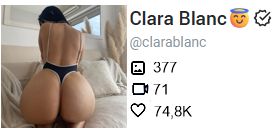
|
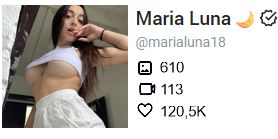
|
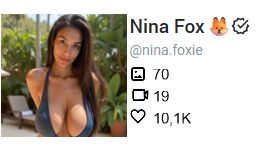
|
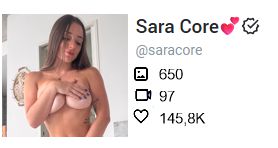
|
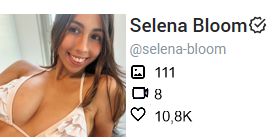
|

|
ExtraBall
Bar tricks.
ExtraBall2
(Clicking on these links daily you support ALRNCN's work. They're collaborators or sponsors and, by visiting their sites, they like us even more)










AMATEUR FLESH: MAIA 2025
Last year, around this time, we introduced you to the Reddit profile of someone called Maia.
She’s still sharing content, still active, still doing her thing. And honestly, it would be pretty lame on my part to keep to myself the new photos and videos I’ve come across.
Some things are meant to be shared. Especially when they keep evolving, getting better, or simply staying interesting enough to deserve another look.

# View photos and videos
ExtraBall
(Clicking on these links daily you support ALRNCN's work. They're collaborators or sponsors and, by visiting their sites, they like us even more)







BOOBS#338 AND HAPPY 2026 TO EVERYONE
The last post of the year — allow me to dedicate it to one of the sagas I like the most. The one that always comes to mind first when I think about ALRNCN: boobs.
I’m not entirely sure why. Maybe that’s something you’d have to ask Freud. The thing is, they get me every time. I’m 100% team boobs. Very few things compare to a pair of great boobs. There’s something that comes close to perfection when boobs are well put together: the way they fall, the shape, the volume, the size of the nipple. That whole combination that, when it works, needs no explanation.
And no, I’m not talking about big or small. I like them all. Because boobs always go in context with the rest of the body. There are bodies that call for one type of boob and others that work better with a different one. Faces that match certain shapes or presences better. In the end, it’s all about balance. But if someone has great boobs… what can I say: you say yes to everything.
So yes, I’m closing the year with boobs. It could’ve been done another way, but it wouldn’t make sense. Because ALRNCN is this. It’s always been this. Looking at the female body without guilt, without weird speeches, without apologizing. Enjoying it. Period.
And since we’re wrapping up the year, I want to wish you all the best for 2026. The usual stuff: excitement, energy, projects, dreams. Thanks for being with us one more year, for being there, for stopping by, for coming back. I honestly hope I’ve entertained you, distracted you, and — even if just for a few minutes — helped you forget how rough life can be sometimes.
I wish you lots of luck in everything, but above all good health, because in the end that’s the one thing you can’t replace.
See you next year with the same energy and the same excitement I had the day I registered this domain and started this project, 23 years ago.
And yes. We’ll keep talking about boobs.

# Watch videos
ExtraBall
(Clicking on these links daily you support ALRNCN's work. They're collaborators or sponsors and, by visiting their sites, they like us even more)







 CamBB.xxx
CamBB.xxxWe find the best live porn cams across many different cam sites like Streamate, Chaturbate, Cam4 and Stripchat.
 ChatSex.xxx
ChatSex.xxxWith Chat Sex you get free sex cams featuring nude cam girls you can chat with for free.










RECOMMENDED SITES
 Add your site
Add your site
- BoobieBlog
- celeb-stalker.com
- Motherless
- Erotic Beauties
- Nude Babes
- sweetlicious
- Kanoni Net
- Candid Teens
- Shocking Porn
 Add your site
Add your site💩 CrazyShit
🤪 eFukt
NudeChatGirls
👉🍑 Top XXX Pictures
Bingo Porno
Best Porn Blog Sites
 Sex Games
Sex Games
Real Amateur Porn
MrPornGeek
Comepollas
PornScn Free Porno
AI Girlfriend App
Hardcore Porn Videos
NSFW.Tools
Sex AI Chat
Porn Game
ShareAnyNudes
Teenager365
Naked AI

















THE INSTAGRAM OF THE DAY: SARAAHLLOYD
sarah lloyd
im australian so i have more fun ❀♡

# Watch photos
You can also follow us on our INSTAGRAM ACCOUNT
BolaExtra
Hypnotized by Angela White.
You can watch many Angela White videos at this link
ExtraBall2
(Clicking on these links daily you support ALRNCN's work. They're collaborators or sponsors and, by visiting their sites, they like us even more)





ALRNCN STYLE COSPLAY VOL13
Cosplay started as a tribute. Here, it’s reinterpretation.
Characters from manga, anime, video games, or movies taken to the territory we know best: less respect for the canon and more focus on the body. The costume as an excuse. Nudity as the destination.
Content creators who step into the character’s skin… and then decide to take it off.
A new volume. More fantasy. Less clothing.
Because when it comes to cosplay, the one that hits hardest is ALRNCN’s.

# Watch videos
How to unlock adult content on Telegram (Apple, Android, or any device)
If you try to open our Channel and Telegram shows a warning about adult content and won’t let you in, it means the restriction filter is turned on.
Just go to https://web.telegram.org, log in, and open:
Settings → Privacy → Sensitive content
Turn on “Disable filtering” and you’re good to go.
The change syncs automatically with your Telegram app on any device.
ExtraBall
Take a good sip!
ExtraBall2
(Clicking on these links daily you support ALRNCN's work. They're collaborators or sponsors and, by visiting their sites, they like us even more)








Contact
You can tell us whatever you want via email: [email protected]
If you prefer, you can use this contact form:
If you prefer, you can use this contact form:






THE INSTAGRAM OF THE DAY: BELDOTS
Beldots
Your favourite Aussie

# View photographs
You can also follow us on our INSTAGRAM ACCOUNT
ExtraBall
Let’s see how long it takes you to notice it.

ExtraBall2
(Clicking on these links daily you support ALRNCN's work. They're collaborators or sponsors and, by visiting their sites, they like us even more)







AMATEUR MEAT: HOLLYDARK
I’m pretty sure that if you went on a date with HollyDark, our amateur pick of the day, you’d do everything you could to make it to at least second base. And when we say second base, we mean getting right in between those two massive tits she’s got.

# View photos and videos
ExtraBall
(Clicking on these links daily you support ALRNCN's work. They're collaborators or sponsors and, by visiting their sites, they like us even more)



























